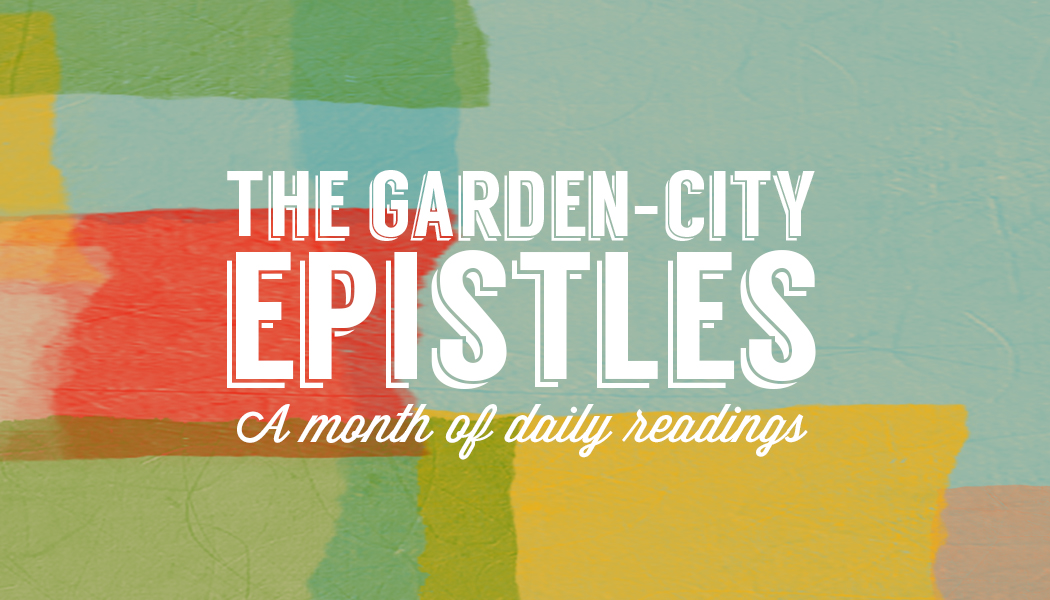This one’s for Dave Benson, who’s always been so curious about heaven.
You’ve always been curious about heaven. Like most of us, you’ve snuck glimpses at the back of your Bible to see if you can decipher the hidden meanings in Revelation. You’ve prayed for accurate dreams to show you what heaven’s really like, hoping the good bits from all those crazy books by PhDs are true.
I don’t blame you. I do the exact same thing.
Connecting our origins to our destiny may be the single most neglected task of western Christianity. Faced with an avalanche of weird ideas, pseudo-prophecies, and outright speculative nonsense, most of us have given up any real hope of figuring out how God plans to set Creation right. The old adage claims we waste too much time on the “furniture in heaven” and the “temperature in hell.”
But our curiosity serves us. Don’t our longings for the truth about heaven ennoble us to live chastely, to act virtuously, and to guard our spirits against contamination? Doesn’t our heavenly curiosity motivate us to study, to delve into the scriptures, and to prayerfully consider what we’ve learned?
You know it does.
The Jewish prophets foretold God coming to His people and a day when all people would be filled with the Spirit of God.[1] In Revelation 21, then, we should not be surprised that God’s glorious presence has now covered the whole earth. This is at least part of what John intended when he described the City of God as a perfect cube,[2] reminiscent of the holy of holies.
All Creation functions as God’s sanctuary,[3] not just one portion of a secluded Eden. Everything is expropriated for worship. Everything finds its fulfillment in God, with God, and before God. Which is to say everything fits. There’s room for you. Everyone has a place. Everything belongs. Which is good news for the misfit toys of the world. There is healing for sickness,[4] death, the nations, and nature in God’s presence.
God makes his dwelling as much on us as in us. He lives in us like I live in Michigan. And the features of the New Jerusalem correspond to the features of the Christian life. The golden streets are lit paths of righteousness and providence. The gates that represent the apostles and the tribes also represent the boundaries of faith, defined by those who have come before us. The leaves of the Tree of Life, meant for healing the nations, indicate that the fruit of our lives will heal the world around us. The river of life flows from God, through us, to the world.[5]
The life we’re promised for eternity is the life we’ve got now, only better. It’s feasting and laughing and music and work without gluttony or stomach-ache, humiliation or mockery, exhaustion or futility. This is what John means when he tells us God makes all things new[6] (a very different promise than God making all new things). God takes what already exists and sweetens it, perfects it, and removes any strain or stain from it completely. Our relationships will be exonerated, our loves will be sanctified, our creative energies will be intensified and uninhibited by sickness or death or fatigue or ego.
Perhaps that is the fullest understanding of Christ as Alpha and Omega. Those words don’t just mean “beginning and end.” They mean “source” and “goal.” What God began in the garden, he will complete in the garden-city. He made us, and he will complete us.
So—yes—let your heavenly curiosity lead you, so long as it leads you to virtue, fecundity, and maturity in Christ. Then you’ll experience the reality of living on-earth-as-it-is-in-heaven, now-as-then, with Christ not only as your beginning and end, but as your middle also. He sets you on this path, he maintains your heading, and he’ll greet you when you arrive.
[1] Joel 2.28; Ezekiel 36.27.
[2] Revelation 21.16.
[3] Psalm 24.1.
[4] Revelation 22.2.
[5] Revelation 21.
[6] Revelation 21.5.
fossores
Related posts
Categories
Category Cloud
Tag Cloud
Recent Posts
- Victors and Victims November 6, 2018
- 3 Hacks for Happiness October 29, 2018
- Hope Against Death September 20, 2018
- The Shape Of The Cross September 19, 2018


